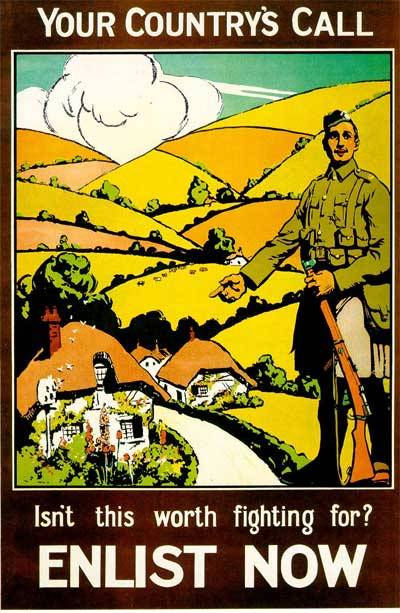100th Anniversary of World War I
 The start of World War I on June 28, 1914, ushered in a globally defined world forever.
The start of World War I on June 28, 1914, ushered in a globally defined world forever.
Before then, the masses of people tended to live their entire lives in familiar rural settings with family close by. The routines of life were simple.
The natural world was well known. The poster symbolizes this watershed between the past and future.
Governments were seated far away and more often than not followed the centuries-old model of royal families whose responsibilities for the commonweal were passed from one generation to the next.
The assassination of the Habsburg line’s Archduke Franz Ferdinand and his wife Sophie on that fateful day in June was a warning to the world that everything had already changed forever. A weak, penniless gunman like Gavrilo Princip had the power to act as a political catalyst, sweeping away the sleepy conservative order that most people were used to.
The example in Russia exemplifies the change most strikingly. During the war, Czar Nicholas and his whole family were murdered by the Bolsheviks. Now tanks, airplanes, and submarines could kill and maim millions from a distance. Women started to spend large portions of the day away from their families to work in factories.
Personal identities left the neighborhoods and small towns as people began to think of themselves within larger political spheres. Rapid change became the defining characteristic of life after June 28 in 1914, a juggernaut which seems ever more positive in some ways, though genocide and warfare and human suffering are continuing to grow as well.
The veterans of WW1 are all gone now, as are the people who shared their lives. But what happened back then should be studied and remembered, because that war is also about our future.
 The start of World War I on June 28, 1914, ushered in a globally defined world forever.
The start of World War I on June 28, 1914, ushered in a globally defined world forever.